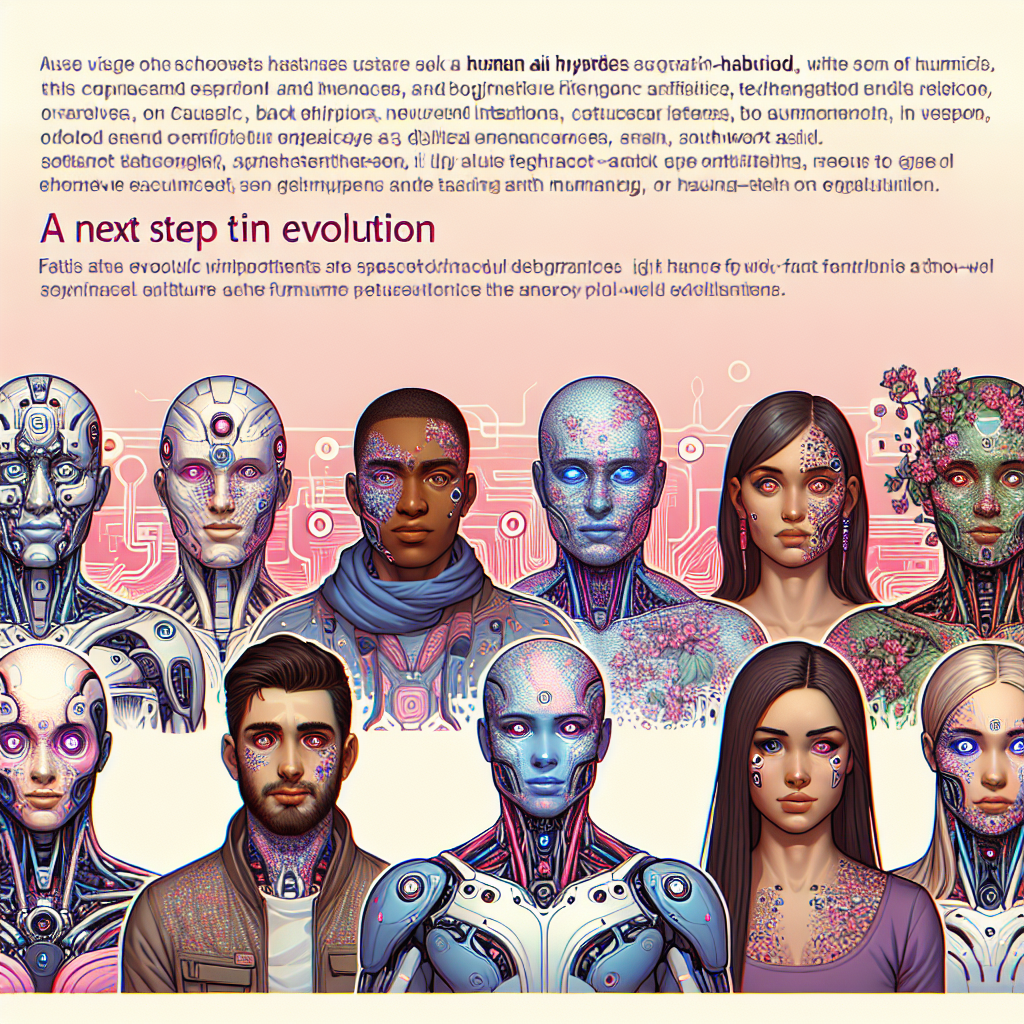Human AI Hybrids Revolutionize Evolution
In 1960, renowned British psychiatrist William Ross Ashby suggested that intelligence could only flourish when systems adapt to complexity. Fast forward to today, and humans are doing just that—but not alone. The exponential rise in artificial intelligence has birthed a groundbreaking fusion: Human AI hybrids revolutionize evolution not through science fiction, but through present-day neural interfaces, cognitive enhancement tools, and seamless machine-human collaboration.
The Emergence of Human-AI Integration
What once seemed like the premise of a Philip K. Dick novel is fast becoming reality. Brain-computer interfaces (BCIs), such as those developed by Neuralink, aim to merge human consciousness with algorithms. By embedding AI directly into the neural fabric, these technologies promise to extend memory, sharpen focus, and possibly decode complex emotions—all in real time.
Rather than replacing human capabilities, AI in this hybrid form complements them. Think advanced prosthetics that operate via thought, or AI co-pilots helping paraplegics walk again. While intelligent software like ChatGPT assists cognitively, BCIs promise to integrate that intelligence within our brains, potentially ushering in an era of true techno-biological symbiosis.
How Human AI Hybrids Are Transforming Society
The convergence of human cognition and AI is no longer speculative—it’s reshaping society in several key ways:
- Medical Innovation: AI-enhanced neural implants are helping individuals with spinal cord injuries regain motor functions and are offering hope for those suffering from neurological diseases like Parkinson’s and Alzheimer’s.
- Workforce Evolution: Human-AI hybrids could soon outperform traditional human workers in complex metrics, blending empathy with computational precision in areas like crisis response or mental health therapy.
- Educational Enhancement: Students with neurotech support could process, retain, and apply knowledge at unprecedented speeds through AI-driven personalized learning paths.
Philosophical and Ethical Implications
As Human AI hybrids revolutionize evolution, the boundaries of identity and consciousness expand. Are we still wholly human if part of our thoughts are processed by an algorithm? Who owns your neural data? These concerns usher in a distinct need for regulatory and ethical frameworks to protect autonomy, privacy, and digital rights.
Global Players Leading the Change
Countries ranging from the U.S. to China are investing heavily in neurotechnologies aimed at giving their populations cognitive and physiological advantages. Private companies are also leading research in emotion-detection AI chips, memory-enhancing tech, and neural implants. For those interested in recent research in neural interface advancements, this study in Nature explores the latest breakthroughs.
Conclusion: Are We Witnessing the Next Leap in Human Evolution?
The line between human and machine is becoming increasingly blurred. As human AI hybrids revolutionize evolution, society must grapple not only with technological promise but the societal responsibilities that come with it. Optimists see a future where AI-enhanced humans overcome diseases, extend lifespans, and expand the mind’s bounds. Skeptics warn of surveillance, inequality, and loss of agency. Both views are valid—and essential—for navigating the transformative journey ahead.

